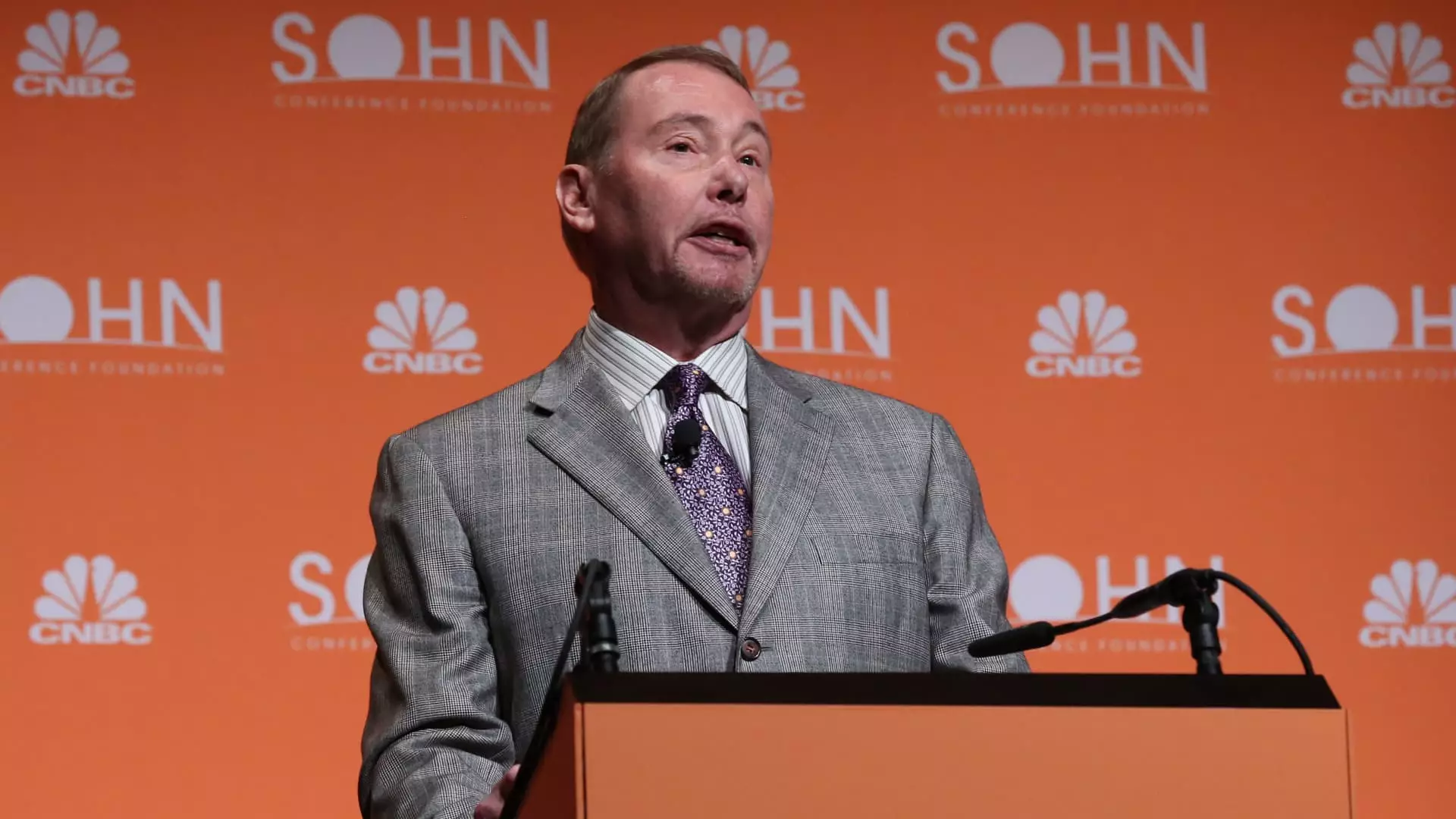Jeffrey Gundlach, the CEO of DoubleLine Capital and a significant figure in fixed-income investing, has recently voiced striking predictions regarding the implications of a potential Republican hold on the House of Representatives. His assertions suggest that if Republicans secure control, we could witness a dramatic increase in interest rates driven by the policies of a Trump administration. This scenario emerges amid a backdrop of mounting national debt and fiscal uncertainty, positioning Gundlach as a keen observer of the intricate relationship between political maneuvering and economic outcomes.
As the government grapples with colossal deficits, Gundlach points out the precarious condition of the fiscal landscape. With the 2024 fiscal year concluding with a budget deficit surpassing $1.8 trillion, concerns about the sustainability of such financial practices grow more acute. Moreover, over $1.1 trillion of this expenditure is directly attributed to managing an escalating national debt, which currently stands at an alarming $36 trillion. Gundlach argues that if legislative leaders opt to champion expansive spending initiatives, such fiscal irresponsibility could lead not only to increased deficits but also to rising inflationary pressures, thus propelling interest rates higher.
Interest Rates and the Federal Reserve’s Role
According to Gundlach, any significant uptick in government borrowing—prompted by heightened spending—could trigger a surge in long-term interest rates. This trend signals a complex interaction with the Federal Reserve, which has been pursuing a path of rate cuts in response to economic threats and lower inflation expectations. As traders anticipate future cuts, Gundlach suggests that the Fed’s policy response may need recalibration should the political landscape shift dramatically in favor of sustained fiscal expansion. This serves as a reminder of the delicate balance the Fed must strike between supporting economic growth and controlling inflation.
Despite the grim fiscal picture Gundlach paints, he expresses a certain optimism regarding the election of Trump and its potential impact on recession probabilities. Historically, the Trump administration’s inclination towards tax reductions and fiscal stimulation may insulate the economy from immediate downturns, provided these policies take shape effectively. Gundlach opines that such a political climate could inject momentum into the economy, subsequently lessening the likelihood of a near-term recession—a noteworthy shift from his previous predictions of an economic slowdown.
As investors and analysts alike heed Gundlach’s insights, the overarching narrative underscores the undeniable interplay between political decisions and economic realities. Should a Republican trifecta materialize, the ensuing fiscal strategies will likely reshape the interest rate landscape and broader economic forecasts. For now, market participants must remain vigilant, as the prospects of fiscal policy, interest rates, and economic performance remain firmly intertwined, propelling us into a future laden with uncertainty yet rich with potential outcomes. The trajectory of interest rates will be a crucial barometer for assessing the success or failures of upcoming legislative decisions, setting the stage for a challenging economic discourse in the coming years.

